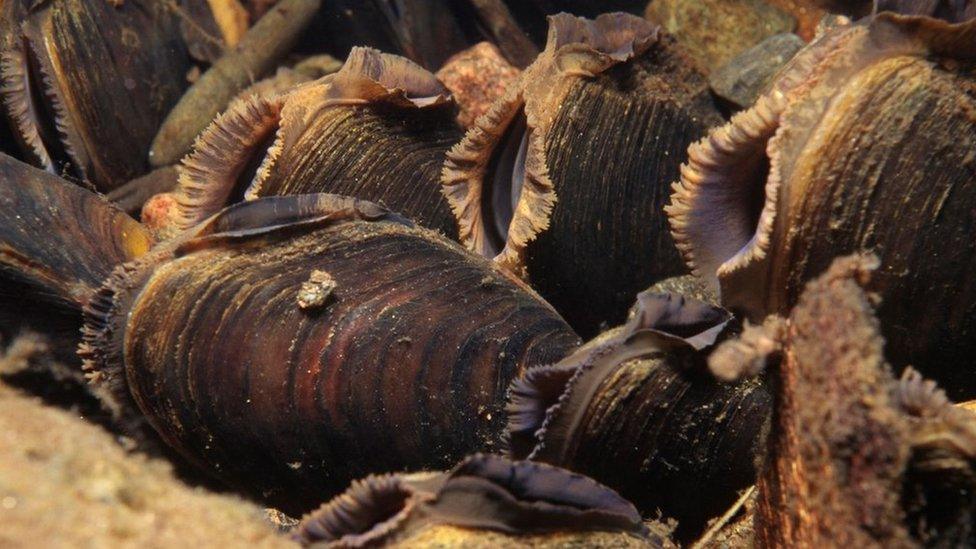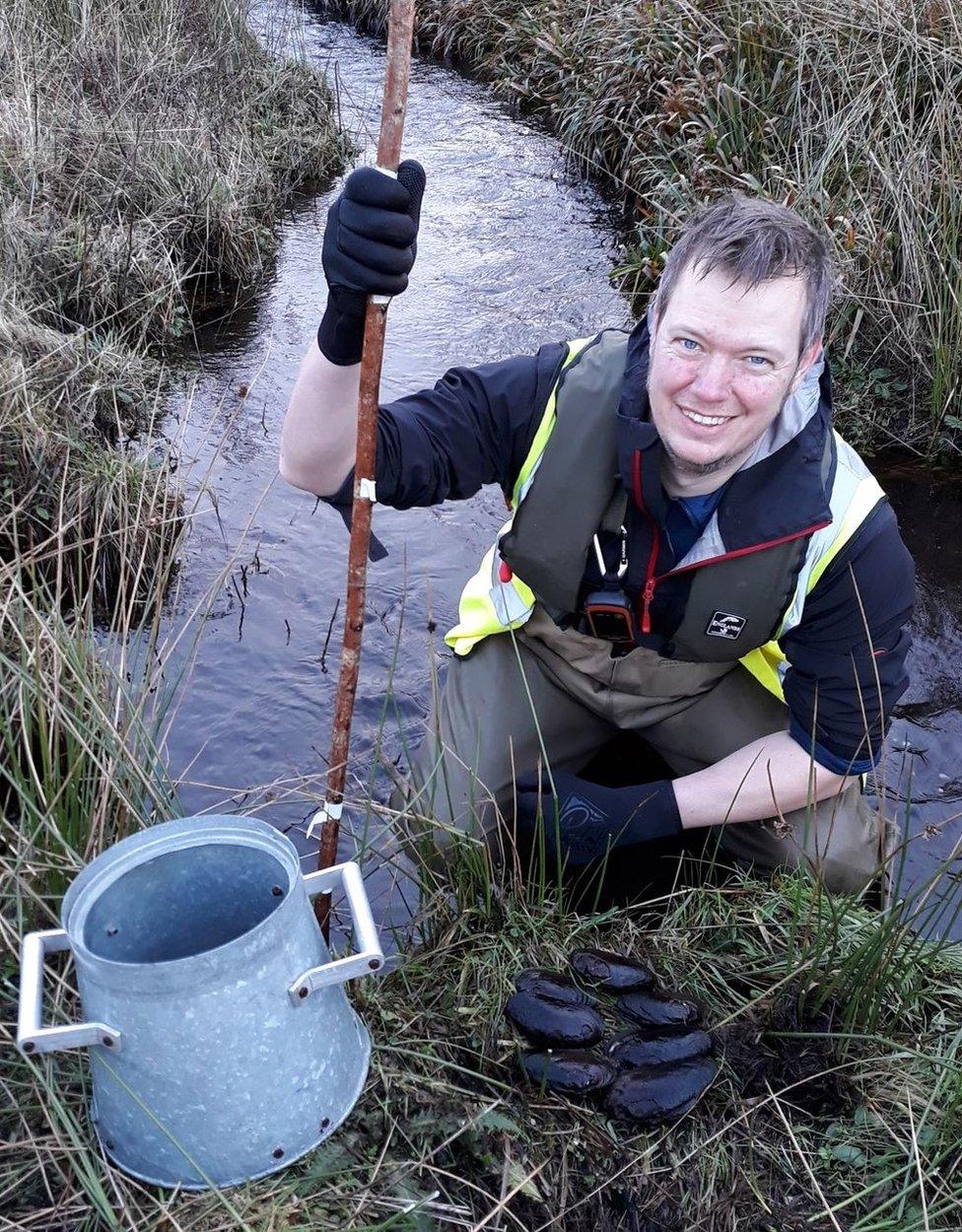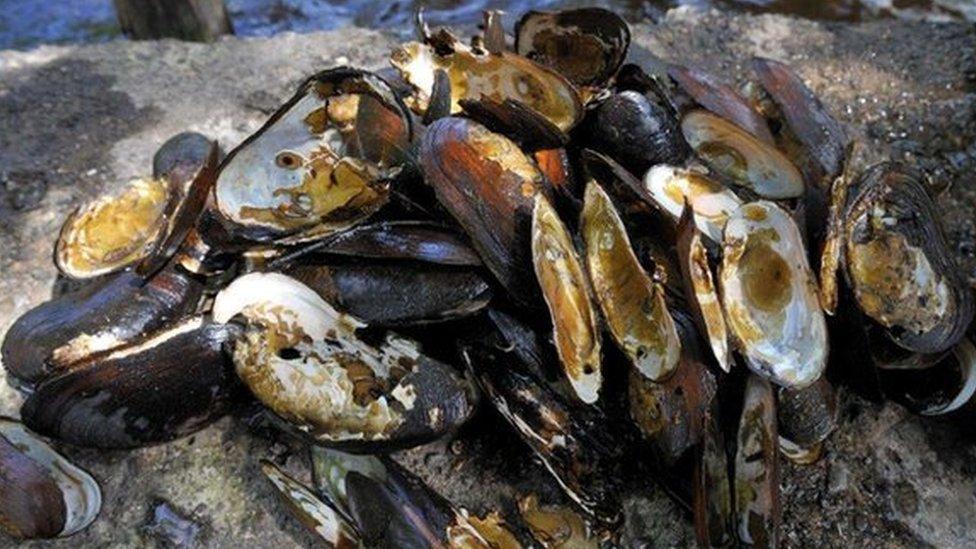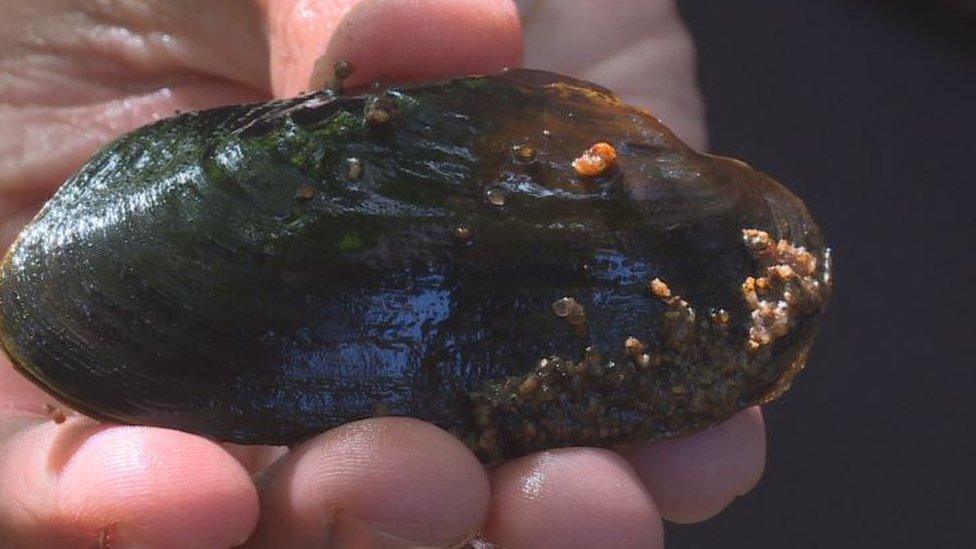New colony of rare freshwater pearl mussels found in Highlands
- Published

A new colony of endangered freshwater pearl mussels has been discovered in north Highland.
The rare species was uncovered during a watercourse survey being carried out before culvert replacement work.
The pearl mussels are similar in shape to common marine mussels, but can grow larger and live for up to 130 years in fast-flowing rivers.
The Highlands and Islands are among Britain's last strongholds for the critically-endangered species.
The location of the find is being kept secret to prevent illegal poaching.
The survey was carried out ahead of habitat improvement work funded by Scottish Natural Heritage (SNH) and managed by Forestry and Land Scotland (FLS).
Dramatic decline
About 8,000 native broadleaf trees will be planted in groups along 6.5km (4 miles) of watercourse. Six barriers to fish passage will also be removed from tributaries.
The movement of Atlantic salmon and brown/sea trout is essential to the freshwater mussel population to support the larval stages of their life cycle.
They harmlessly live on the gill filaments and grow until they detach themselves the following spring.
They then need to land in clean sand or gravel in order to grow.
However, poaching, loss of habitat and pollution are among the reasons for dramatic declines in their numbers.

Donald Shields with some of the mussels from the new colony

In history, Julius Caesar's admiration of pearl mussels is cited by his biographer as a motive for the first Roman invasion of Britain in 55BC.
Suzanne Dolby, FLS environment forester, said: "This entails a whole lot more than just knowing about trees. Species conservation is a huge part of what we do and that includes looking after over a quarter of all of Scotland's pearl mussel watercourses.
"This is a significant responsibility for a species that has declined by 95% in central Europe and is classified as critically endangered in Europe."
The new culverts will restore the natural river bed, allow for a more natural flow of water and let fish pass freely along the tributaries to access additional spawning areas on the outskirts of the forest.
'A fighting chance'
As the pearl mussels hitch a ride with the young fish, this also allows mussels to colonise new stretches of watercourse and replenish existing populations.
Iain Sime, SNH freshwater and wetlands advice manager, said: "Freshwater pearl mussels can live to well over 100 years old, but the species is critically endangered in Europe.
"These rare molluscs are found in fast-flowing, unpolluted rivers and streams - often in catchments that are partially or wholly forested - and prefer a stony, well-oxygenated sand or gravel bed that is free from siltation.
"The sustainable management of forests - including the careful harvesting and restocking of trees - can therefore play a crucial role in their survival, alongside managing any barriers on the river bed.
"This work will restore this vital habitat to help ensure that this rare species will have more than a fighting chance."
- Published15 June 2018

- Published28 August 2019
